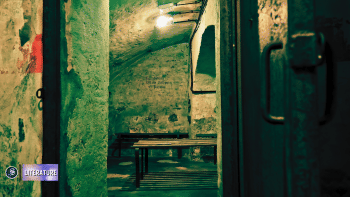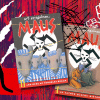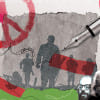Why we shouldn’t sacrifice our emotions at the altar of intellect

On my first day of a class on postcolonial theory, our professor ended the lecture with a simple exercise that we would reflect back on at the end of our semester. She asked us to write down, in one word, how we feel about theory. I remember writing at the back of my notebook, striking it out at first only to rewrite the same word: "Healing". In truth, this was my hope.
What I never imagined was that not only could theory give me the power to heal spaces within myself but that it might allow me to recognise fertile grounds for sparking empathetic dialectics to alleviate the pain caused by the many injustices of the world. This endeavour is not only linguistic but also physical, emotional, and personal. There is no doubt that language wields great power as one of the most influential forces in sociological evolution as well as impediment to humankind.
But while language is the medium through which knowledge is expressed, critical to the production of that knowledge is not merely rational and scientific analysis but something many (particularly female and marginalised) scholars and thinkers have long been discredited and invalidated for including or privileging in their dissemination of knowledge. And that thing is emotion.
Sara Ahmed introduced the concept of Affective Economies (2004) where she established emotions as objects that enter the public and political life and, simply put, "do things" through "the very intensity of their attachments". She talks about the economy's' capacity to affect and be affected by the circulation of feelings. In particular, she talks about how hate is a collective, economic production, one that is largely profitable to imperialistic, colonial enterprises around the world. We see this evidenced throughout history from the slavery and systemic racism of Black people to the horror of the Holocaust, from the rise of rampant Islamophobia post 9/11 all the way to the brutal ongoing genocide of the Palestinian people today. If emotions connect the individual to the collective, then the transference of fear and hatred naturally lead to devastating consequences. And when such emotions move between bodies, they become political. It is the very thing that causes one group of people to be able to dehumanise another enough to justify their erasure.
Audre Lorde, in an interview with Claudia Tate, said "Our feelings are our most genuine paths to knowledge." To a young woman constantly trying to be less emotional in favour of academic legitimacy, such a notion seemed revolutionary and it made me wonder: what if it had the capacity to do more than just lead to the creation of knowledge? What if it contained the power to push back against the construction of political processes of hatred and instead help create economies that are built on the foundations of love? This idea is not a new one and certainly not easy to actualise but it is one that becomes increasingly important to strive towards in a world that seems as though it is quite literally on fire.
This realisation manifested during a particular interaction back in October of last year at the start of the ongoing genocide, when I was told that my feelings of grief over the plight of the Palestinian people did nothing to liberate them. While their reason behind telling me this was well-intentioned, as I like many others across the world, was entering a state of compassion fatigue having to witness such impossible, incomprehensible suffering, it made me stop for a second. Did my grief actually serve no one else other than myself? Were my emotions truly unproductive?
The answer to this I found the very next week during another seemingly trivial exchange when, upon watching me tear up at the sight of yet another violent occurrence in Gaza, my 16-year-old cousin who had no prior knowledge of the history behind the war, asked me to explain it to him. As he and his younger siblings hung on to my every word, I became aware of a responsibility I didn't realise I had. Somehow, my visible distress compelled him to ask these questions, meaning my emotions suddenly had the capacity to saturate a previously neutral body with new, productive emotions capable of opening up their path to knowledge.
I decided then that my grief is not unproductive. While it may not liberate the oppressed, it has the capacity, however small, to affect those previously unaffected. As inconsequential as it may feel to hopelessly bear witness online or to shamefully write academic papers on traumatic history containing historical parallels of lessons never learnt, these are not meaningless things. They are crucial in preserving personal histories embedded within the collective, in disrupting political processes of memorialisation that have historically been constructed by those who wield power, and in remembering the oppressed as more than simply the oppression they face. The only emotion that's unproductive is indifference.
Contrary to what we may have been told, emotions do not weaken our intellectual and critical understanding of the world–they strengthen it. The suffering we have been witnessing in recent times has become too great for words. Such trauma escapes all language. But in the process of amplifying their cries of suffering, we're absorbing fragments of that pain. So if it hurts, it's because it's supposed to. Maybe this pain can be a reminder that no matter how dire the circumstance, love, hope, and solidarity can flourish even in an economy designed to facilitate separation and individualism through hatred and intolerance. And only by holding on to our emotions can we hope to find opportunities not only for individual but also collective healing.
Montaha Absar is a writer from Dhaka, Bangladesh. Her work is primarily centred on the intersection between literature, theory, and intimate, personal reflections.

 For all latest news, follow The Daily Star's Google News channel.
For all latest news, follow The Daily Star's Google News channel. 








Comments